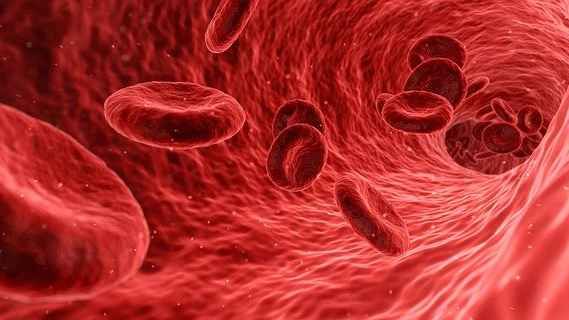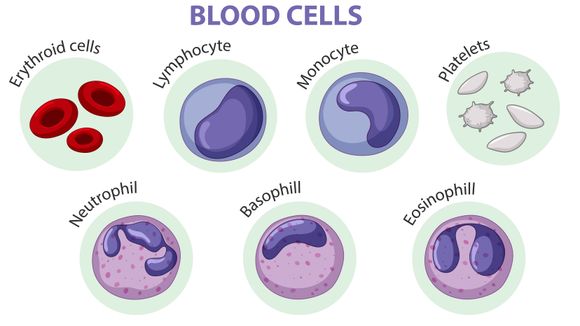What is anemia
Anemia is a deficiency in the number or quality of red blood cells in the body. They carry oxygen into the body using a certain protein called hemoglobin. Anemia means that either the level of red blood cells, or the level of hemoglobin is lower than normal.
When a person has anemia, his heart needs to work harder than usual to pump the necessary amount of blood and thus provide enough oxygen in the body.
During increased physical activity or exercise, cells may not be able to carry enough oxygen to satisfy the needs of the body, and a person may get exhausted and feel unwell. Even breathlessness and rapid heartbeat when climbing stairs can be signals of probable anemia. [ [ref. 1]
Symptoms of anemia
Depending on the severity, symptoms of anaemia may include [ref. 2]
- Pale skin
- Fatigue
- Weakness
- Easy tiredness
- Breathlessness
- Drop in blood pressure when standing up from a sitting or lying position (orthostatic hypotension) – this can also happen after acute blood loss
- Common headaches
- Rapid heart beat or palpitations
- Irritability
- Concentration difficulties
- Loss of appetite
Types of anemia
Different types of anaemia include: [ref. 3]
- Anemia due to vitamin B12 deficiency
- Anemia due to folate deficiency (folic acid)
- Anemia due to iron deficiency
- Anemia in chronic disease
- Hemolytic anemia
- Idiopathic aplastic anemia
- Megaloblastic anemia
- Malignant anemia
- Sickle cell anemia
- Thalassemia

Causes of development of anemia
Anemia can develop for many reasons, including:
- Nutritional deficiency – lack of iron, vitamin B12 or folic acid
- Malabsorption – when the body is unable to properly absorb or use the nutrients in the diet caused by conditions such as celiac disease, irritable bowel syndrome, Crohn's disease, gluten intolerance and others
- Hereditary diseases – such as thalassaemia or sickle cell anemia
- Autoimmune diseases such as autoimmune hemolytic anemia, in which immune cells attack red blood cells and reduce their life expectancy
- Diseases of the kidneys
- Chronic diseases such as diabetes, rheumatoid arthritis and tuberculosis
- Hormonal disorders such as hypothyroidism
- Bone marrow disorders
- Blood loss – due to trauma, surgery, peptic ulcer, severe menstruation, cancer (in particular bowel cancer) or frequent blood donation
- Medicines and medications – including alcohol, antibiotics, anti-inflammatory drugs or anticoagulants
- Mechanical destruction – mechanical heart valves can damage red blood cells, reducing their life expectancy

Treatment of different types of anemia
After diagnosing and determining the type of anemia by blood tests, examination, gastroscopy or colonoscopy, urine tests and others, the appropriate treatment is switched. It aims to increase the number of red blood cells of a person, which increases the amount of oxygen in the blood.
So, according to the type of anemia a person has, treatment can include:
- Iron deficiency anemia: Iron supplements and dietary changes can help. The doctor should also identify and address the cause of any unusual bleeding, if any.
- Vitamin deficiency anemia: Treatment may include dietary supplements and injections of vitamin B12.
- Thalassemia: Treatment includes folic acid supplements, chelated forms of iron and, for some people, blood transfusion and bone marrow transplantation.
- Anemia due to a chronic disease: treatment is directed first to the management of the underlying disease.
- Aplastic anemia: Treatment of aplastic anemia involves blood transfusion or bone marrow transplantation.
- Sickle cell anemia: Doctors treat this type of anemia with oxygen therapy, pain relief drugs and intravenous infusions. They can also prescribe antibiotics, folic acid supplements and other means.
- Hemolytic anemia: The treatment plan may include immunosuppressants, infection treatment and plasmapheresis, which filters the blood.








